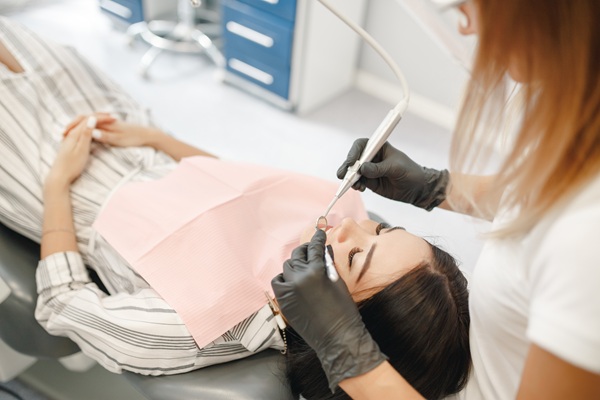Implant Dentistry and the Importance of Healthy Gums
 Implant dentistry offers durable and natural-looking solutions for tooth loss. Read on to learn more about dental implant restorations. These titanium-based prosthetic tooth roots are implanted directly into the jawbone to offer a solid link to a dental prosthesis, such as crowns or a dental bridge. Dental implants can only be placed successfully if the gums and jawbone are healthy enough.
Implant dentistry offers durable and natural-looking solutions for tooth loss. Read on to learn more about dental implant restorations. These titanium-based prosthetic tooth roots are implanted directly into the jawbone to offer a solid link to a dental prosthesis, such as crowns or a dental bridge. Dental implants can only be placed successfully if the gums and jawbone are healthy enough.
The importance of healthy gums in implant dentistry
Gum and jawbone health is essential in determining whether a patient’s mouth can sustain an implant. The condition of the gums and bone in the mouth is critical for a long-lasting, healthy dental implant.
Gum health is important for dental implants for the following reasons:
- Implants will not get adequate support if the gums and bones have been damaged. A dental implant is designed to sit firmly in the gum and jaw tissue, effectively substituting the natural tooth roots and offering a sturdy base to place a crown, bridge, or permanent denture.
- When the gums are healthy, they fit snugly around your implant, protecting it and helping it stay put. The healthy jaw tissue also forms a lasting link with the implant. The implant will not heal properly if your gums or jaw are weak, and it will not be secure.
- Gum recession may expose the root of the implant. If the gums continue to recede after undergoing dental implant placement, the implant posts may become vulnerable to the bacteria and food particles present in the mouth. This makes it more difficult to maintain the implant in excellent condition, and it may get infected or need removal.
- Periodontal disease is a major source of infection. Since the same bacteria that cause gum disease may also cause peri-implantitis, a dental implant infection, the dentist will not recommend getting an implant until the periodontal disease has been managed effectively. Even with proper management of gum disease, if the patient has a fragile jawbone and their gum tissues have degenerated severely due to the disease, patients may not be eligible to get an implant.
The most significant risk of unhealthy gums is that there is a high chance of implant failure. Even while implant failure is always a tiny probability, the odds increase remarkably when periodontal disease is present. That implies the implant procedure may have to be repeated, resulting in additional time and expenses.
The solution to gum issues
Fortunately, many patients may still be able to get a dental implant even if their gum and bone tissues are not in optimal health. However, they will almost certainly need gum and bone grafts before the treatment. A grafting procedure involves implanting a chunk of bone and tissue materials into the gums and jaw to provide a solid, healthy foundation for the dental implant.
Ready to schedule an appointment?
The dentist will examine your oral health during a consultation to determine whether you are a candidate for implant dentistry restoration. Dental implant restorations offer a reliable and long-lasting way to replace missing teeth.
Request an appointment or call South Florida Dental Arts at 305-230-4041 for an appointment in our Miami office.
Recent Posts
You may be a good candidate for an implant dentistry procedure if you are missing one or more teeth and desire the highest quality (and most natural) restoration possible. This review discusses what an implant dentist looks at when determining if a patient is a good candidate for the procedure.Ideally, implant dentistry patients should have…
Implant dentistry is growing in popularity. It is a restorative option for a single missing tooth, a section of missing teeth, or an entire row. This review discusses the implant dentistry procedure and when a dentist might recommend a dental crown attachment to complete the implant restoration. To make the most informed decision possible regarding…
Implant dentistry uses dental implants to serve as the support for replacement teeth. The process involves a minor surgical procedure to place the implants. Although the risks are minimal, it can take some time for the mouth to fully heal and for the dental implants to fuse together with the jawbone after the implant dentistry…


